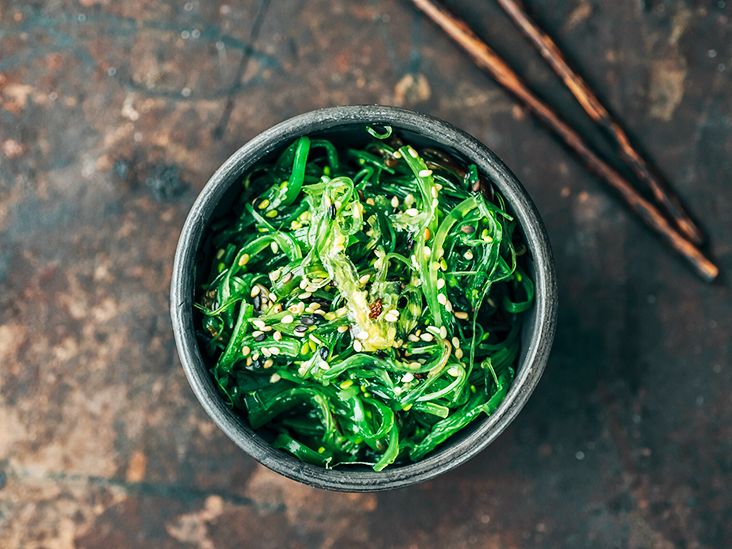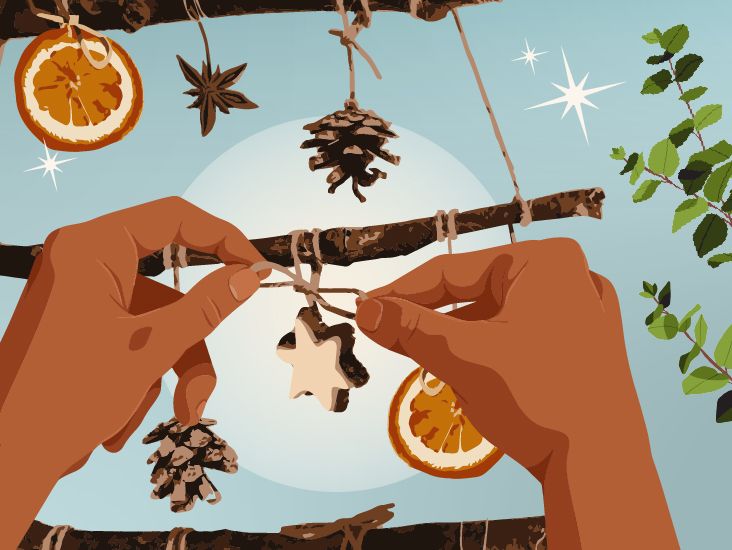
We include products we think are useful for our readers. If you buy through links on this page, we may earn a small commission. Here’s our process.
Healthline only shows you brands and products that we stand behind.
Our team thoroughly researches and evaluates the recommendations we make on our site. To establish that the product manufacturers addressed safety and efficacy standards, we:- Evaluate ingredients and composition: Do they have the potential to cause harm?
- Fact-check all health claims: Do they align with the current body of scientific evidence?
- Assess the brand: Does it operate with integrity and adhere to industry best practices?
As sustainability and human health become top of mind, the world seems to be wildly intrigued by mushrooms. These seemingly innocuous little fungi contain the powerful potential for healing people and the planet.
Their broad uses range from supporting mental health treatment and cancer recovery to cleaning up environmentally devastating oil spills and replacing unsustainable protein sources.
Is there anything these little toadstools can’t do?
Want to learn the amazing ways mushrooms can help you in your health journey while providing some much-needed love to the planet?
Read on to get the full picture of why mushrooms might just change the world.
Mushrooms have long been a valued food and medicine in cultures worldwide.
A
- cardiovascular benefits
- protection of the liver from damage
- anticancer properties
- antiviral properties
- anti-inflammatory properties
- antimicrobial properties
- antidiabetic properties
Mushrooms have been found to contain beneficial agents, like:
- phenols
- lycopene
- beta carotene
- free radical scavengers
- antioxidants
- amino acids, including nicotinic acid, pantothenic acid, and ascorbic acid
- riboflavin or B2
- prebiotics
Not only do they pack a nutritional punch, but mushrooms also offer a host of benefits for the planet.
As you may have heard, sustainable protein is becoming an increasingly important topic as we look to the future of food.
Many plant-based alternatives have been proposed as an antidote to methane-heavy cattle feedlots, from pea to cricket protein.
According to the Food and Agriculture Organization of the United Nations, global livestock represented 14.5 percent of all human-caused carbon emissions as far back as 2006. Of all livestock, cattle represented 65 percent of all emissions.
According to a 2019 research article, foods associated with improved human health often have low environmental impacts. This implies that dietary changes with the potential to lower noncommunicable disease rates can also lead to sustainability.
A
Enter: mushrooms.
These high protein, nutritionally dense little guys are already widely available to many consumers and require little to no processing before they’re eaten.
Check out the nutrient profile of eight popular types of shrooms below.
| Mushroom (100 g) | Calories | Protein | Fat | Fiber | Carbs |
| 34 | 2.4 g | 0.5 g | 1 g | 3 g | |
| 22 | 3 g | 0.3 g | 1 g | 3 g | |
| 30 | 2.2 g | 0 g | 3 g | 7 g | |
| 22 | 3 g | 0.4 g | 2 g | 6 g | |
| 22 | 2.5 g | 0.1 g | 0.6 g | 4 g | |
| 22 | 2.8 g | 0.4 g | 1.3 g | 4.7 g | |
| 39 | 2 g | 0 g | 3.5 g | 6.8 g | |
| 37 | 2.7 g | 0.3 g | 2.7 g | 8 g |
Mushroom ‘meat’
If you don’t like the taste of mushrooms cooked up in a stir fry or sprinkled on a salad, there are more and more options emerging for even the faint of fungi.
Take Meati, a mushroom-based meat alternative that’s grown indoors in stainless steel tanks. Meati is made of mycelium: essentially mushroom roots.
Editor’s pick
I gave Meati a try and was immediately impressed with the texture. It was chewy and dense in a satisfying way, much like organ meat. It had what I’d call a “mushroomy” taste, but it was mild enough that it easily took on other flavors.
I simply fried my Meati “steak” in some oil and ate it plain. It was definitely a dinner adventure. I recommend giving it a try and experimenting with different sauces, recipes, and flavor combinations.
Mushroom jerky
If you’re a Shark Tank fan, you may remember the episode where the sharks fall all over themselves to invest in Pan’s Mushroom Jerky, a meat-free alternative to the classic trail food made with shiitake mushrooms.
Mushroom recipes
Want to give other mushroom-based dishes a go?
Try Mushroom Walnut Vegan Taco Meat from Sweet Simple Vegan or Vegetarian Mushroom Meatballs from Cooktoria.
The mushroom madness doesn’t stop there.
Looking for the right pairing for your mushroom meal? Try a shroom-based beverage to complement the edible kind.
While you might be hesitant to swap your daily Starbucks for a mushroom latte, think of the health benefits.
Plus, a 2021 study noted that mushrooms contain multiple bioactive compounds with therapeutic benefits, but in some cases can only be consumed and digested in the form of beverages.
Not only that, but a 2019 study noted that mushroom tea production in a small Malaysian community helped preserve a surplus of otherwise perishable mushrooms, increasing the sustainability of the food supply. The project also helped the community increase their wealth with minimal up-front costs.
Following suit, there are plenty of drinkable mushroom products available.
Mushroom mixes
Paul Stamets is often hailed as the father of fungi in the wake of his book “Mycelium Running: How Mushrooms Can Help Save the World” and his 2008 TED talk.
He’s long captained the helm of Fungi Perfecti, a family-owned business based out of Olympia, Washington dedicated to cultivating gourmet and medicinal mushrooms.
Mushroom hot chocolate
FourSigmatic is my go-to for a mushroom-based hot chocolate on a cold, wintry day. This lightly sweetened blend contains reishi mushroom with a dash of coconut palm sugar for a sweet treat.
Mushroom chai
This chai is my favorite evening treat. It contains turkey tail and reishi mushroom, which are chock full of antioxidants and may help ease stress. Plus, it doesn’t contain caffeine, so It makes for a great wind-down ritual.
Mushroom coffee
FourSigmatic has it covered on the mushroom coffee front too. The brand offers several options featuring various mushroom blends, plus a wide range of roasts to suit any palate.
Bonus: The brand offers a delectable-looking mushroom-infused chocolate bar. Yes, please!
Mushrooms have played a role in medicine for centuries, and they began to get some attention in the field of psychiatry as far back as the 1970s.
Mushrooms and mental health
These days, “magic” mushrooms don’t have the bad rep they once did, and
One of the main ingredients responsible for the potential mental health benefits of mushrooms is psilocybin, a naturally occurring psychedelic compound.
Research has shown its potential to help with symptoms of:
- treatment-resistant depression
- anxiety
- pain
- obsessive-compulsive disorder
- quitting smoking
- substance use disorder
cluster headaches - cancer-related stress
- end-of-life stress
A
- positive changes in personality
- increased altruism, or selfless concern for others
- enhanced feelings of connectedness
- enhanced connection to nature and pro-environmental behavior
- decreased violent and criminal behavior
- reduced suicidal ideation
- reduction in politically authoritarian views
- increased openness
- reduction of egotistical attitudes, narcissism, and greater prosocial behavior
- decreased depressive and anxious symptoms persisting up to 6 months after a single active treatment
- improved psychological flexibility and feelings of personal meaningfulness
- improved psychological outlook
- increased subjective sense of well-being
- increased meditation depth
- increased sense of positive self-dissolution, or “ego-death”
These effects may have something to do with the popularity of microdosing, the practice of taking extremely small amounts of psychedelic substances to enhance performance, productivity, and mood.
Mushrooms and cancer treatment
One mushroom in particular known as turkey tail may have the potential to fight
This may be due to beneficial compounds like antioxidants that reduce cellular damage as well as
Guess what? Mushrooms may also be good for your brain.
A 2019 review suggested dietary supplementation with lion’s mane, reishi, and cordyceps mushrooms may have a beneficial effect on cognitive impairment.
In a small
One of my favorite mushroom functions is something known as mycoremediation, which means “fungus restoring balance” in Greek.
Mycoremediation is the process of using mushrooms to decontaminate the environment. It can help clean up oil spills, heavy metals, and other pollutants from soil, water, and the atmosphere.
A 2019 study noted that mycoremediation may be an effective method for treating petroleum-contaminated soils.
A 2021 study found that fungi offer a cheap, effective solution for treating wastewater polluted with heavy metals. On the other hand, conventional technologies are costly and generate hazardous waste.
A 2020 study said fungi are effective at removing agricultural wastes and degrading toxic pollutants, like:
- polyaromatic hydrocarbons (PAHs), a chemical that occurs naturally in coal, crude oil, and gasoline
- antibiotics
- herbicides
- insecticides
- antifungal drugs
- algal bloom
- cyanotoxins
- detergents
- heavy metals
- plastic
The study concludes there’s encouraging evidence that “mycoremediation can expunge the environmental pollutants and make this planet a safe habitat.”
Mushrooms also play a role in religious and spiritual rituals. They’ve been used since pre-history in shamanism to enhance ritual activities and visionary experiences. They’ve even inspired modern-day film.
One of the most identifiable mushrooms, Aminita muscaria, was used in ceremonies in Neolithic Siberia and is still used in some modern-day European traditions. It was also used in the Elysian Mysteries in Greece, Mithraic Mysteries in Rome, and indigenous cultures in Guatemala and Southern Mexico.
The ritualistic use of a sacred drink known as soma was used by Aryan migrants to the Indian subcontinent around 1500 BC and played a role in the Buddhist tradition. It’s also mentioned in a Hindu sacred text known as the Rig Veda and is correlated with Amanita muscaria.
According to 2018 research, there’s evidence that a sacred mushroom cult existed in Mayan culture. There’s even a word — mycolatry — to describe the worship of fungi.
While mushrooms may be a pretty amazing organism, it’s important to use caution when consuming them.
Many species of mushrooms are poisonous and may even be deadly when eaten by humans and animals.
If you forage for mushrooms, always check with an expert to ensure the mushrooms you find are safe to eat before ingesting. There are many species of mushrooms that are “lookalikes,” meaning the edible kind look very similar to poisonous varieties.
Mushrooms for mental health treatment are mostly in the experimental phase, and remain illegal in many states.
Always check your state and local laws and consult a licensed, qualified professional regarding the administration of mushrooms for psychiatric conditions. Never self-medicate.
Have mushrooms made an impression yet?
These potent fungi may have the power to help with a number of health and planetary woes, including improving mental health treatments, helping with environmental cleanup, and offering a sustainable protein source.
If you haven’t yet, maybe it’s time to give mushrooms a try.
Crystal Hoshaw is a mother, writer, and longtime yoga practitioner. She has taught in private studios, gyms, and in one-on-one settings in Los Angeles, Thailand, and the San Francisco Bay Area. She shares mindful strategies for self-care through online courses. You can find her on Instagram.




